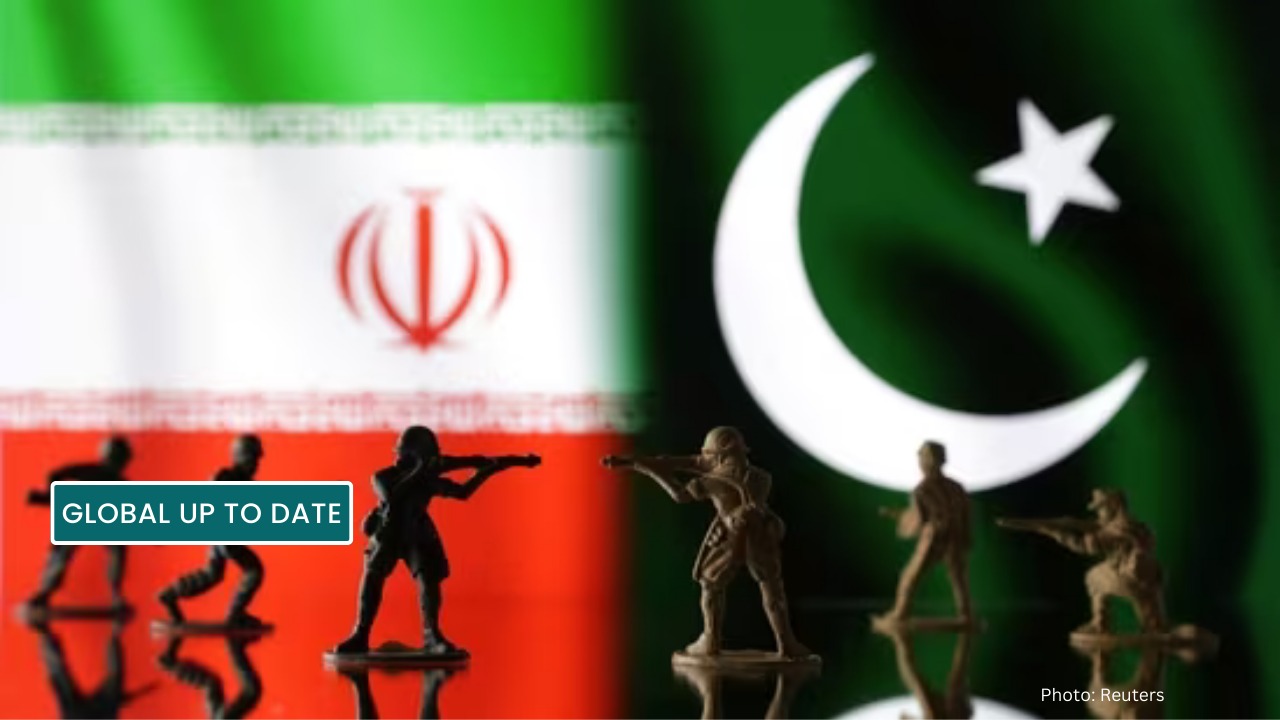Fires in Baluchistan: Recent Wave of Conflict Between Iran and Pakistan
Aong Cha Ching Marma | 26 January 2024
A surprising military strike by Iran against its powerful neighbor Pakistan on January 16, 2024, seemed to startle the whole world and raised questions about the reason behind this sudden action. Iran claimed a missile strike on two hidden bases of the anti-Iran insurgent group Jaish al-Adl (Army of Justice), located in Pakistan's Baluchistan province. In response to this attack, Pakistan retaliated against Iran in less than two days, striking missiles and sending fighter jets to Iran's Sistan-Baluchistan province, asserting to target the hideouts of anti-Pakistan ethno-nationalist insurgents.
Iran firmly stated that the strike aimed to prevent further attacks by Jaish al-Adl, following the terrorist attack in the town of Rask, Sistan-Baluchistan province, on December 15, 2023. Jaish al-Adl claimed responsibility for the Rask attack, in which 12 Iranian police officers were killed and 7 others injured. Additionally, a similar event occurred in Sistan-Baluchistan province in July 2023, resulting in the death of 4 police officers. The attack on Pakistan coincided with recent strikes in Iraq and Syria by the Iranian military.
Pakistan's caretaker prime minister, Anwaar Ul HaqKakar, who was attending the annual meeting of the World Trade Forum (WTF), promptly returned to his country after the sudden strike by Iran. The Pakistani leadership was confounded by this unexpected attack, which constituted a major violation of Pakistan's sovereignty. In line with the need to demonstrate Pakistan's military deterrence, the country was compelled to make a retaliatory attack against Iran. The retaliatory strike was also crucial to uphold the reputation of Pakistan's powerful army chief, Gen. Asim Munir, known for firmness both inside and outside the country.
The region of Baluchistan, known for its distinctive cultural and historical identity, is presently divided among three countries: Pakistan, Iran, and Afghanistan. Baluchistan, dominated by the Sunni majority Baloch people, is rich in natural resources. In Pakistan's Baluchistan province alone, over US $1 trillion worth of resources, such as gold, copper, black pearls, oil, valuable stones, coal, chromite, and natural gas, have been discovered. Moreover, the Baluchistan region is geographically vital for both Iran and Pakistan, housing two major ports, Gwadar Port in Pakistan and Chabahar Port in Iran, which are economically and militarily significant for both countries.
Despite the availability of resources and geo-strategic significance, the Baloch people remain one of the poorest ethnic groups in South Asia. In Sistan-Baluchistan province, over 80 percent of the population lives below the poverty line, while Iran's national average is 28 percent. Similarly, in Pakistan, over 65 percent of the Baloch ethnic group lives below the poverty standard.
Issues related to wealth deprivation, lower political representation, and lack of autonomy for the Baloch people have been major factors behind tension in this region, both domestically and externally. These reasons have led to the formation of several insurgent groups, most of which demand the establishment of a sovereign country called "Baluchistan."
One such insurgent group is Jaish-I-Adil, formed in 2012. While several insurgent groups used to receive funding from Gulf countries before, the funding has decreased or stopped due to a lack of stake in this region. However, Iran asserts that Jaish-I-Adil is currently funded by Israel. Additionally, the support of the Pakistani military to this insurgent group remains suspicious.
The relationship between Iran and Pakistan has never been consistently friendly or hostile. Bilateral trade between the two countries amounts to $2 billion, with most trade occurring in the Baluchistan region. Furthermore, the Iran-Pakistan pipeline, also known as the peace pipeline, is under construction to deliver gas not only to Pakistan but also to India.
Notably, Pakistan is not in good terms with Iran due to Iran's close relationship with India. Conversely, Iran is dissatisfied that Pakistan is a close ally of its rival, the United States. Iran has been able to deter against Israel and United States through its supporting militia group collectively called the Axis of Resistance (including Lebanon's Hezbollah, Yemen's Houthis, Gaza's Hamas, etc.) and its strong proxy army. However, Iran is also concerned that this deterrence may falter due to Israel's support for the Jaish-I-Adil insurgent group and the close relationship between Pakistan and United States.
Both countries are making efforts to maintain a good relationship with each other after the mutual attacks. Among other reasons, such as nearing national elections in both countries, economic dependency, and ongoing domestic issues, play a significant role in the normalization of their relations. China has also played a mediator role to de-escalate tensions between these neighboring countries.
In the face of the escalating tensions between Iran and Pakistan, the complex terrain of Balochistan becomes a pivotal battleground, not only for the involved nations but for the broader stability of the Middle East. The resource-rich yet economically marginalized region, compounded by ethnic disparities and the rise of insurgent groups, paints a challenging backdrop for diplomatic resolution. As China steps in to mediate, the global community watches with bated breath, recognizing that the unfolding events in Baluchistan have the potential to reshape geopolitical dynamics and influence the course of regional conflicts. The resilient spirit of the Baloch people, amidst these tumultuous circumstances, underscores the need for a nuanced approach that addresses both historical grievances and contemporary challenges in order to foster lasting peace in this critical crossroads.
Aong Cha Ching Marma is an Intern at CGS
